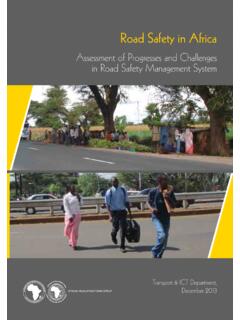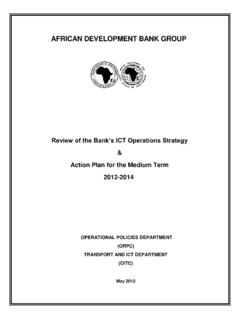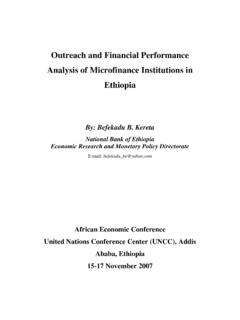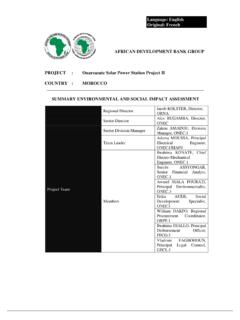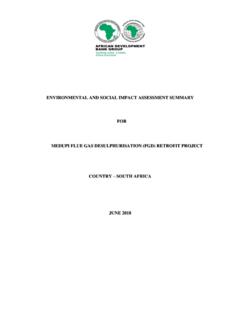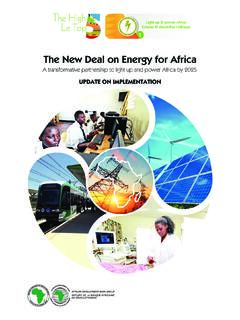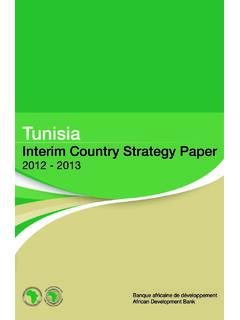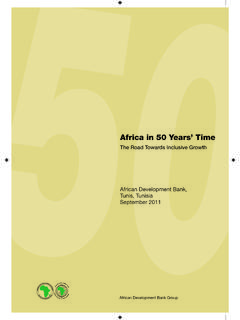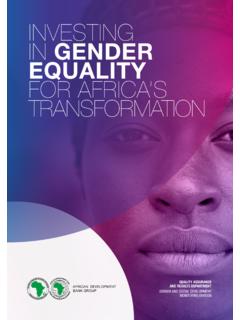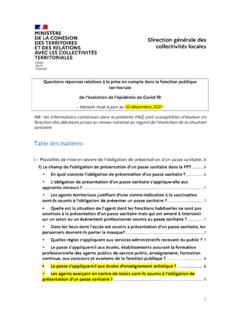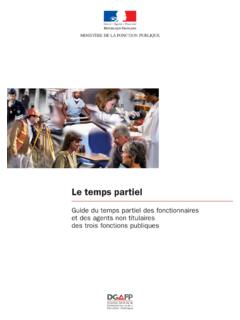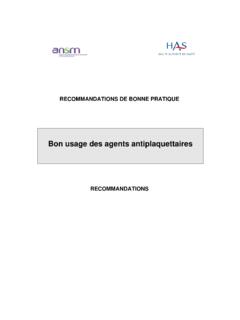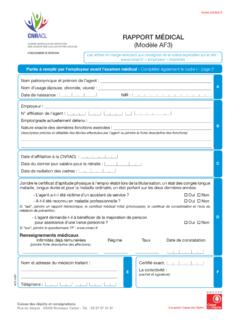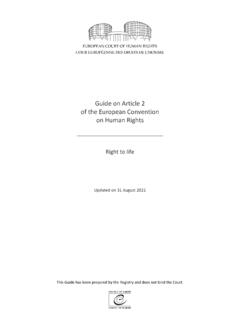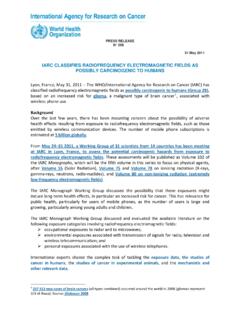Transcription of Empowering African Women: An Agenda for Action
1 Empowering African Women: An Agenda for Action AFRICA GENDER EQUALITY INDEX 2015. Empowering African Women: An Agenda for Action AFRICA GENDER EQUALITY INDEX 2015. ACKNOWLEDGMENT. The Africa Gender Equality Index 2015 is the product of strong collaboration on the part of staff from most of AfDB's departments. The publication was prepared under the guidance of the Director of the Department of Quality Assurance and Results, Simon Mizrahi, and the overall direction of the Special Envoy on Gender, Geraldine Fraser-Moleketi. Marc Kouakou was the task manager of this report, and Yeon-Su Kim established the statistical database for the Index.
2 Additional statistical support and methodological guidance was provided by Alice Nabalamba. We would like to recognise the special role of Georg Weiers. Important contributions were also made by Maria Jos Moreno Ruiz, Linet Gatakaa Miriti, Egidia Rukundo and Gisela especially acknowledge the contributions of chief writers Marcus Cox (Agulhas Applied Knowledge) and Mark Blackden, graphic designer Nadim Guelbi (Cr on Design), editor Patricia Rogers and media consultant Sarah Wachter. Simon Mizrahi Geraldine Fraser-Moleketi Director, Quality Assurance and Results Department Special Envoy on Gender African Development Bank African Development Bank Copyright 2015 African Development Bank All rights reserved.
3 Published May 2015. African Development Bank Group AFRICA GENDER EQUALITY INDEX 2015. This document was prepared by the Quality Assurance and Results Department at the African Development Bank. Designations employed in this publication do not imply the expression of any opinion on the part of the African Development Bank concerning the legal status of any country or territory, or the delimitation of its frontiers. While every effort has been made to present reliable information, the African Development Bank accepts no responsibility whatsoever for any consequences of its use.
4 Gender and Social Development Monitoring Division Quality Assurance and results Department African Development Bank Immeuble CCIA - Avenue Jean-Paul II - 01 1387 Abidjan 01, C te d'Ivoire Phone: (225) 20 26 36 56 Fax: (225) 20 21 31 00 E-mail: CONTENTS. FOREWORD 1. PART I: INTRODUCTION 5. THE GENDER EQUALITY INDEX 5. AN Agenda FOR Action ON Empowering African WOMEN 8. PART II: WOMEN AS PRODUCERS 11. LAND 12. CREDIT 13. INFRASTRUCTURE CONNECTIONS 13. PART III: WOMEN AND HUMAN DEVELOPMENT 17. HEALTH AND REPRODUCTIVE RIGHTS 17. EDUCATION AND SKILLS 18. PERSONAL SAFETY 18.
5 PART IV: WOMEN AS ACTIVE CITIZENS AND LEADERS 23. EQUALITY BEFORE THE LAW 23. WOMEN AS LEADERS 24. CONCLUSION 26. WOMEN IN AFRICA'S DEVELOPMENT 26. AN Agenda FOR Action ON Empowering African WOMEN 27. AFRICA GENDER EQUALITY INDEX 2015. FOREWORD. F. or fifty years, the African Development Bank has championed home-grown solutions to Africa's development challenges. Our philosophy is that the key to Africa's development is harnessing the energy and creativity of Africans. In this spirit, we believe that Empowering African women is essential to enabling African societies to achieve their potential.
6 Africa today is at an optimistic point in its history. After a decade of unprecedented economic growth, African countries are generating more resources to invest in development. Sustained increases in prosperity appear within our grasp. To achieve this vision, however, Africa needs to make full use of the skills and talents of all its citizens including its women to transform its economies and societies. We know that women are more economically active in Africa as farmers, workers and entrepreneurs than anywhere else in the world. They are key to the welfare of their families and the life prospects of their children.
7 They are an important voice in the governance of their communities and their nations. Yet they face an array of barriers that prevent them from playing these roles to their full potential. These barriers to women's full participation are fundamentally unfair. But even more, they are constraints on Africa's achieving its development potential. Bridging the gender gap could yield profound and long-lasting economic returns. To help understand the dimensions of this inequality, the African Development Bank is today publishing its first Gender Equality Index. The Index, which covers 52 of Africa's 54 countries and draws together a large body of data, offers a snapshot of the legal, social and economic gaps between men and women.
8 Its findings will give African leaders, policymakers, economists and civil society the evidence they need to begin dismantling the barriers that prevent women from making a full contribution to the continent's development. With this evidence base, African citizens will be able to demand more from their governments. For our part, the Index will help us meet our commitments to developing gender-balanced strategies and to honing our investment decisions, so that our programmes have the maximum impact on the lives and livelihoods of African men and women. In addition to presenting the first iteration of the Gender Equality Index, this report sets out our reflections on the policy actions needed to overcome gender inequality in Africa.
9 We identify eight areas where concerted Action could make a real difference to women's ability to contribute to, and benefit from, Africa's development. These are areas that can be readily incorporated into national development strategies and investment programmes. Our vision for the Gender Equality Index is to spark dialogue and informed debate on gender equality at national and regional levels. We also hope the Index will enrich and inform the global conversation wherever Africa's development is on the Agenda . Above all, let me stress that gender equality is a positive and forward-looking vision of Africa's development.
10 As we search for resources that will help us build on our successes and set us on the path to long-term prosperity, let us begin from the tremendous potential of the women in our midst. Geraldine J. Fraser-Moleketi Special Envoy on Gender African Development Bank With so many gender equality indexes out there, why do we need another one? The AfDB's Gender Equality Index is different from the others in two ways: its comprehensiveness and its purpose. First, it is the only index that provides evidence on gender equality for 52 of Africa's 54 countries. And second, it was designed not just to measure gender inequality, but to promote development.
